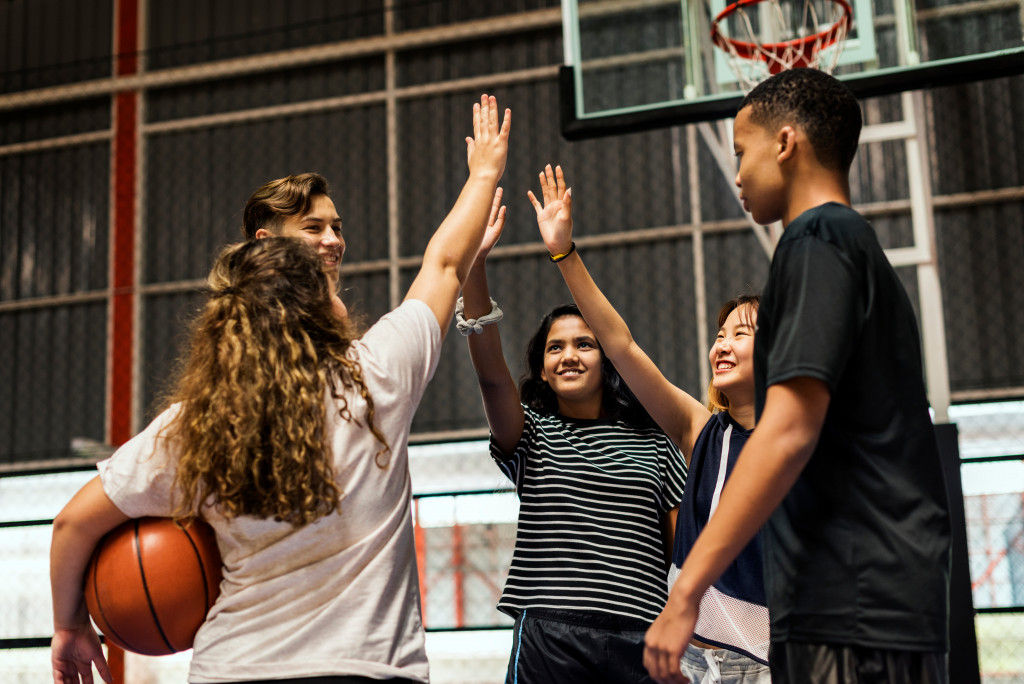- Encouraging mobility and regular physical activity helps children build the necessary skills for sports participation.
- Parents should provide nutritional guidance to their children, including consulting with a nutritionist, educating them about healthy food choices, and modeling healthy habits.
- Allowing children to play can help develop crucial skills such as problem-solving and creativity and foster strong relationships between parent and child.
- Adequate nutrition is essential to boost energy levels during physical activity, so parents should consider providing vitamin supplements.
Sports for children can provide numerous benefits, both mental and physical. Not only does it keep them healthy and active, but youth sports can also help promote self-confidence and social skills and develop essential life skills. Studies have found that participating in competitive sports improves academic performance, increases self-esteem, and promotes physical health.
Participating in sports at a young age can positively influence a child’s development. It allows children to build social relationships with their peers as they learn to work together as part of a team. As each individual works towards a common goal, they gain insight into the value of cooperation and collaboration. In addition to building team spirit, youth sports help children learn the importance of setting goals and striving to achieve them. Through practice, dedication, and hard work, children learn what it takes to reach their potential in any given situation.
However, parents must find ways to prepare their children for competitive sports. Here are a few tips to help you.
Encourage Mobility

Mobility is essential for children when it comes to participating in youth sports. Adequate mobility helps kids move, adjust their postures, and change direction quickly. It also allows them to shift their body weight from one side to the other, improving their balance and agility during physical activity.
Parents should incorporate activities emphasizing mobility into their child’s daily routine to ensure they have mobility skills before sports participation. A few options include running or skipping games, light stretching and muscle release exercises, and dynamic exercises like leg swings or lateral shuffles.
Regular physical activity is also essential in developing a child’s mobility skills. Daily activities such as biking, jumping rope, or playing tag can provide significant opportunities for building strength while developing coordination and agility simultaneously. Additionally, these activities help reduce the potential risk of injury that could otherwise be caused by muscle tightness or poor movement control.
Those activities can help ensure your child is prepared for the physical demands of youth sports. Also, you should ensure that any equipment used during these activities fits and is age-appropriate to prevent injuries.
Provide Nutritional Guidance

Nutrition plays a vital role in a child’s development and performance in sports. Proper nutrition helps boost energy levels during physical activity, ensuring kids can perform their best on the field. A diet that includes lean protein, complex carbohydrates, fruits, and vegetables will provide children with essential vitamins and minerals for good health and performance.
Providing nutritional guidance to help children understand the importance of healthy food choices is essential. Here are a few things parents can do:
Get help from a nutritionist
Kids will need to know what foods to eat and when to maximize their energy levels for sports. Consulting with a nutritionist can help provide critical insights about optimal nutrition for young athletes.
Educate your children
Parents should talk to their children about the importance of eating healthy foods, such as whole grains, lean proteins, fruits, and vegetables. They should also explain why processed foods are not beneficial for physical performance or overall health.
Model healthy habits
Parents must model healthy behavior by incorporating well-balanced meals into their daily routines. This will show kids how important it is to take care of themselves on and off the field.
Provide healthy vitamins and supplements
Food alone might not be enough to meet the nutrient needs of physically active children. Parents should consider providing vitamins and supplements that can help bridge nutritional gaps, such as Vitamin D, Iron, or Omega-3 fatty acids.
Practice with Playtime
While practicing specific sports or physical activities is essential, playtime should not be overlooked. By allowing children to use their imagination and explore, they can develop crucial skills such as problem-solving and creativity. These skills benefit any sport, teaching kids when and how to act in a given situation.
Regularly playing with your child can also help you learn more about them, fostering strong relationships that will last throughout their lives. You can try many recreational activities, with a fun sensory play area for toddlers at the top of the list. Kids can enjoy the facility to the fullest while improving their hand-eye coordination, balance, and agility. Other activities can be as simple as playing a game of catch, shooting hoops in the driveway, or setting up an obstacle course.
Final Thoughts
By following these tips and investing time in helping your child prepare for youth sports, you can help them gain confidence and perform better on and off the field. Take it one step at a time, and don’t forget to have fun!






